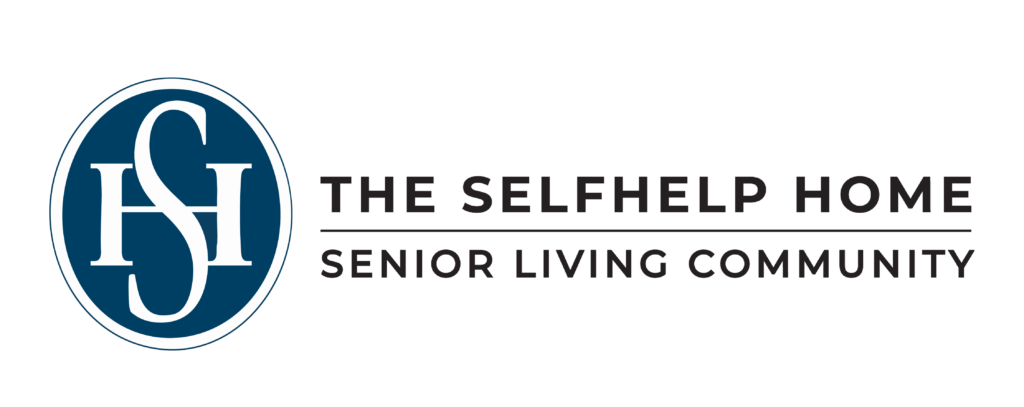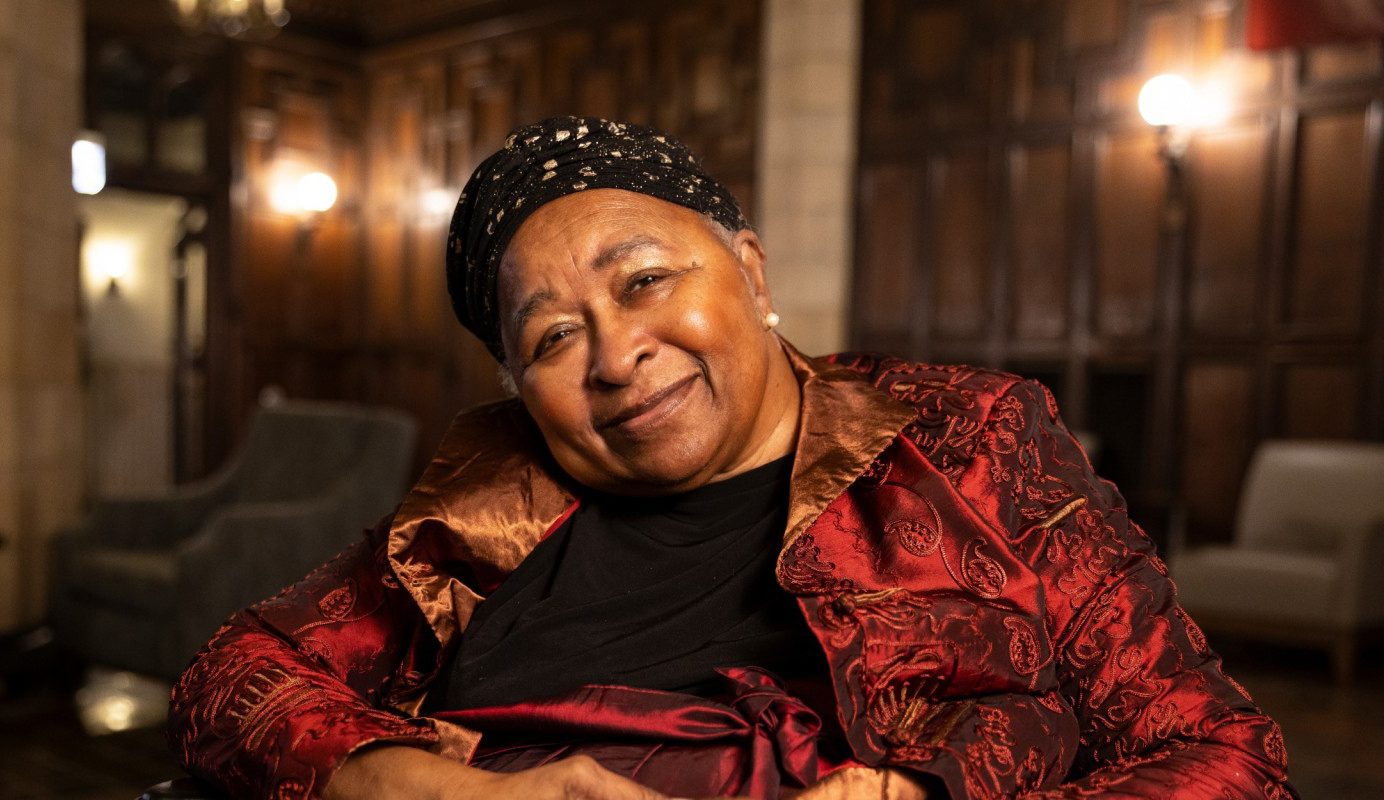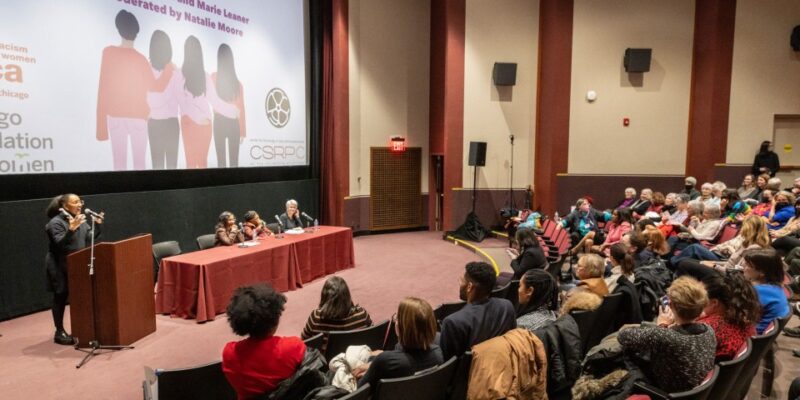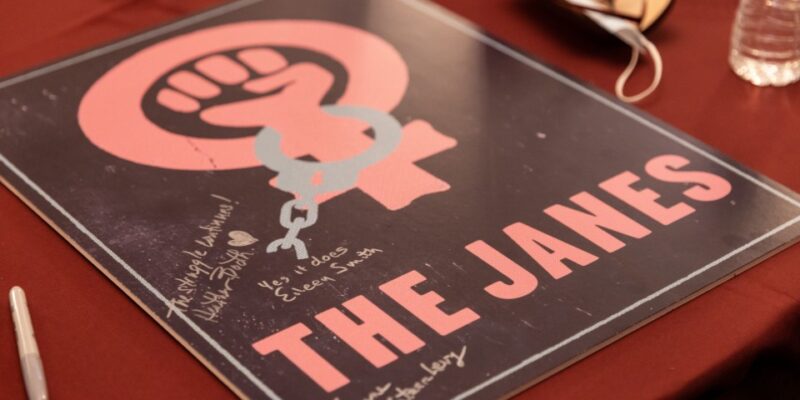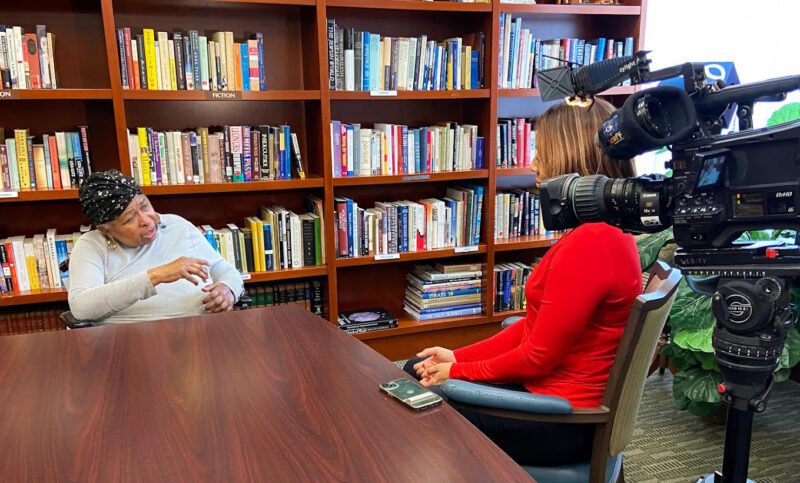Featured image source: Manuel Martinez / WBEZ
Selfhelp’s very own resident, Marie Leaner, is a member of the Janes, a Chicago-based underground network of women who facilitated thousands of abortions before they became legal. She has been fighting for abortion rights for over 50 years.
In honor of Black History Month, we’d like to shed a spotlight on her incredible story. This article was written by Candace McDuffie, featured on WBEZ Chicago:
Marie Leaner was one of the few Black members of a covert abortion network active in Chicago in the 1960s and 1970s. On the 50th anniversary of Roe v. Wade, she tells her story.
In the late 1960s, Marie Leaner made a tough choice, one criticized by even her mother: to join a group known as the Jane Collective, a covert abortion network that helped women secure services on the South Side of Chicago in the late 1960s.
Born and raised in the Washington Park neighborhood, Leaner was one of the few Black members of the group, which used code names and various fronts — including Leaner’s own home — to provide safe abortions.
Leaner’s family worried she had joined a “white woman’s movement.”
“I wasn’t sure whether I wanted to do anything with [the Jane Collective] or not because of my parents,” said Leaner recently, speaking from the Uptown assisted living facility where she now lives. “My mother thought that it meant that I wanted to be white. She didn’t understand, but she also didn’t stop me from doing what I did or going in the direction that I went. I wanted to be around white people because I wanted to be involved in making a difference in the world.”
The 50th anniversary of the Supreme Court abortion case Roe v. Wade has put a fresh spotlight on abortion access and the risks some women took to provide services prior to the ruling. An HBO documentary released last year tells the story of the “Janes,” who were arrested and charged with several counts of abortion and conspiracy to commit abortion in 1972. Though they faced up to 110 years in prison, the charges were dropped when Roe v. Wade made abortions legal just one year later.
But the racial dynamics of the movement have not been fully explored. At 80 years of age, Leaner — who has been involved in civil rights initiatives almost her entire life — reflected recently on the magnitude of her work in an interview with WBEZ.
Black feminism is inherently complex because of how race and gender intersect, often pressuring Black women to choose between one or the other. Even though Leaner understood the urgency to advocate for racial equality in the 1960s and ‘70s, she also recognized that misogyny often permeated those movements.
Image: The 50th anniversary of the Supreme Court abortion case Roe v. Wade has put a fresh spotlight on abortion access and the risks some women took to provide services prior to the ruling. Leaner was part of a January panel on the topic, moderated by WBEZ’s Natalie Moore and convened by the YWCA, the University of Chicago and the Chicago Foundation for Women. (Source: Manuel Martinez / WBEZ)
An activist and paralegal, Leaner said she was motivated to become a “Jane” through her work at Chicago’s Department of Children and Family Services and her membership in the Chicago Women’s Liberation Union, which would eventually sponsor the collective.
“Around that time, there were all these little Black boys getting shot up in the alley in, on the West Side, in North Lawndale … winding up with their bodies strewn in alleyways, my God — and girls were getting pregnant. We’re talking 11-, 12-, 13- and 14-year-olds,” she stoically recalled.
She decided she would join because, she says today, “it was the only organization I knew that was doing anything on behalf of women in this city. And it was a hard choice ‘cause [the Janes] were all white.”
Image: Leaner was one of the only Black members of the Janes, an underground group of women in the late ’60s and early ’70s who helped more than 11,000 people access abortions before Roe v. Wade became law. (Source: Manuel Martinez / WBEZ)
The Chicago Women’s Liberation Union was, at the time, providing health education and resource services on the West Side. “Our kids were getting impacted,” Leaner said. “But I thought: ‘Let me, let me do this abortion stuff cause there’s too much going on for our kids.’ ”
Though her passion for social justice led her to work alongside revolutionaries like Fred Hampton and Martin Luther King Jr., Leaner rebuffed calls to join the militant Black Panther Party in the ‘60s and ‘70s. Her choice to be an outlier in this regard is important, since modern-day movements such as “Say Her Name” were created to highlight police brutality and other violence against Black women — which is frequently overlooked in comparison to Black men.
“I didn’t like how the women related to the men in the [Black Panther] party — and I didn’t like how the men related to the women,” she stated. “It was that simple. ‘We gotta support the brothers! We have to subjugate ourselves to stand behind the brothers!’ It’s [wasn’t] about a partnership. It [was] about the brothers.” She continued: “Our men were getting beat up and shot up … and so there was nothing about how the men were treating the women. I wasn’t gonna be a person who opened her legs … just to serve a brother.
“Now, there were some women in the party who were privileged,” Leaner continued. “And when I declined to join the Black Panther Party, they said ‘Oh, well, [those rules] wouldn’t apply to you. Those things that other women do…that wouldn’t be for you. You would sort of be like Angela Davis in Chicago,’ more or less.”
Even though this meant she would be on the front lines alongside the men of the party with no expectations of being subservient to them, Leaner dismissed the offer. “I was there to fight the good fight against segregation — and I had the right to say no.”
That intersection of race and gender again came to a head when Roe v. Wade was overturned last year. The outcome in the case that overruled it, Dobbs v. Jackson Health Women’s Health Organization, will disproportionately affect Black and brown communities that have disparate access to health care and higher maternal mortality rates.
When asked about her thoughts on women’s rights being attacked in 2023 as they were in 1963, Leaner acknowledged the severity of the situation and insisted on not giving up.
“We as a society are in trouble for sure,” she admitted. “But what do I think about women achieving equality … and equality overall? I think it’s going to happen. I mean, it may not happen legally, but it’s going to happen.”
Leaner said she plans to remain true to her calling by fighting for Black liberation as much as she can. “All I can do is keep true to myself, look out for others and myself and continue to stand up for us as a people.”
Candace McDuffie is a senior writer at The Root. She is based in Chicago.
